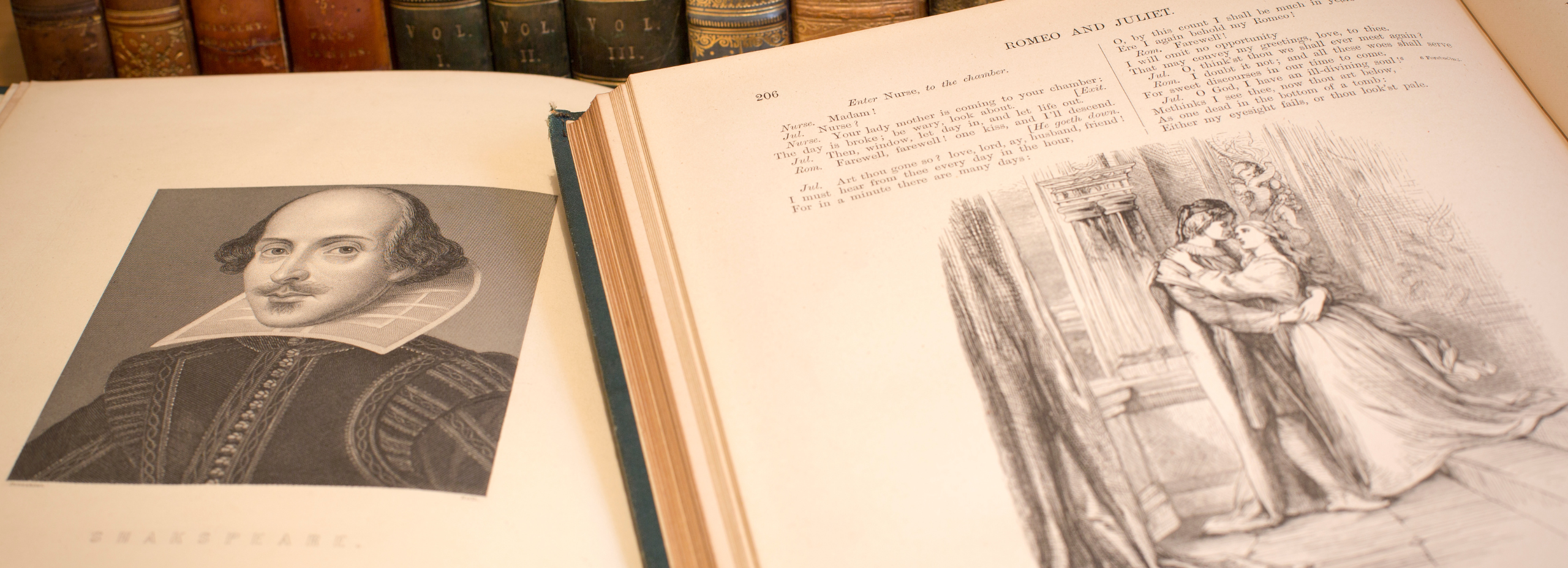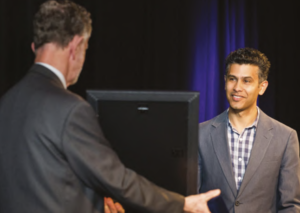The journey of a Max Crawford medallist
Australian Academy of the Humanities 2024-04-26

In 2016, Professor David McInnes FAHA FRHist received the Max Crawford Medal for his work researching lost plays in early modern Britian.
‘I remember being the only Shakespeare scholar at my university, working on and studying lost plays,’ David reflects eight years after receiving the prize. ‘When I was told I was the recipient, I was overjoyed.’
‘The prize acknowledged I was working on something bigger; something that was important to the public humanities and wider society.’
David’s research suggested that, based on only approximately 543 plays surviving between 1567 and 1642, Shakespeare’s plays were an atypical representation of theatre at the time, and, ‘whatever we think we know about the drama of Shakespeare’s day is based on one-sixth of the theatrical output.’
An open-access database for lost plays
 David McInnis being presented with the 2016 Max Crawford Medal at the Annual Fellows’ Dinner, Melbourne. Image: Michelle McFarlane.
David McInnis being presented with the 2016 Max Crawford Medal at the Annual Fellows’ Dinner, Melbourne. Image: Michelle McFarlane.Before receiving the Max Crawford Medal, David created an open-access database for scholars to share information about lost plays in England and continue his research about the literary culture of Shakespeare’s England, how people lived and how they perceived social and political changes of their time as represented through theatre.
‘A fuller picture of theatrical activity in London, 1567 to 1642, helps us understand what is arguably the single most important context for Shakespeare’s work: the plays he was responding to and influencing, in the repertories of his own company and of the rival companies.
‘The first step towards such a recovery was the creation of an open-access website for theatre historians to contribute whatever snippets of knowledge they possessed about individual lost plays.’
Today, the database brings together editors from Australia, the United Kingdom, and North America to contribute their research and findings to ‘ensure appropriate integration with wider discourses and hopefully to bring about, in the process, a fundamental shift in the way we regard the theatrical activity of Shakespeare’s London.’
Becoming a Fellow of the Academy
In 2023, David was named a Fellow of the Academy of the Humanities for his significant contribution to the scholarship of early modern English literary and theatrical history.
He describes the moment he found out he’d been welcomed into the Fellowship:
‘It was a huge honour both because it was recognition by my peers — significant mentors and figures within academia — but also because being elected to the Academy affirmed my work advocating for the public humanities, how important open access research is, and why the work that we do matters.’
David feels strongly about communicating the importance of his research to the public and acknowledges the role of awards like the Max Crawford Medal in empowering researchers to uncover the story of humanity.
‘If you’re a professor, nominate someone for this award—it’s that simple. If you’re an EMCR, don’t be afraid to contact a senior academic to nominate you for this medal.’
The post The journey of a Max Crawford medallist appeared first on Australian Academy of the Humanities.